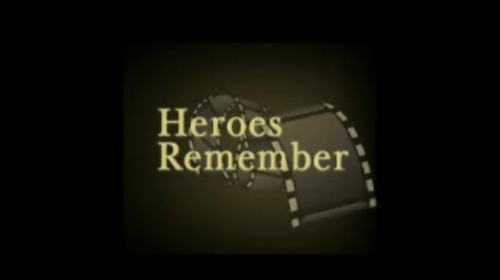It was just like confinement
First World War Audio Archive
It was just like confinement
Transcript
Women waving goodbye to a ship leaving port.
submarine and got called out in the middle of the night ready toSailor posing for a photograph inside a crest.
take life boats because of submarines, but we never got hit.Submarine breaking the surface of the water, with a ship in the distance.
We had a good convoy. They encountered no mishaps on the wayConvoy of three ships.
over. It took us seven days to go over. In Liverpool, we didn’tSoldiers getting ready to board a ship.
get a chance to see it at all because they got us out of there so fast. Then they took us to Bramshott and we were in what they called a segregation camp for three weeks. Made sure we hadn’tSoldiers walking through a town.
brought any foreign diseases with us, and so on. It was just likeMilitary camp.
confinement, we weren’t allowed out of camp for all that length of time. That’s where they trained us for endurance test and longSoldiers travelling on a country road.
marching and what have you. That’s where it was decided who couldSoldiers at a range, practicing their shooting.
go to France and who couldn’t, more or less. But they gave usMen in the camp doing thier morning physical training.
then, that was in early June, and they kept us there then til, oh I think it was about the first of October before we got away.Other men tending to the horses.
We weren’t very happy with it, but you know, they kept us aliveMen getting food to eat.
and it was solitude. Nobody was very happy with it.Soldiers on parade.
We had trouble with a recruit there but we were under obligation to do as we we’re told.Description
Mr. Huckerby describes convoying to England and being sent down to Bramshott Camp for quarantine and training.
John Arthur Huckerby
John Arthur Huckerby was born on February 8, 1898, in Golden Plain, North West Territory, (now a part of Saskatchewan). Prior to enlistment, Mr. Huckerby worked as a farm laborer. His sense of patriotic duty led him to enlist in the 217th Battalion at Broadview, Saskatchewan, on March 8, 1916, shortly after his 18th birthday. Mr. Huckerby’s basic training was interrupted when he fell ill with diphtheria. Although not fully recovered when the 217th was deployed to Britain, his officer interceded and took him as a convalescent. He was quarantined at Bramshott Camp for a time and then served as an instructor in bayonet drill and physical training. Mr. Huckerby joined the 46th Battalion, C Company and saw action at Lens, Amiens, Drocourt-Queant, and Canal du Nord. Although there is no record of his having been wounded, he was gassed during a night raid at Lens. He was discharged at the rank of corporal. After returning to Canada, he received a farm from the Soldier Settlement Board and later joined the Saskatchewan Civil Service. Mr. Huckerby enlisted for the Second World War, attaining the rank of sergeant. There is, at present, no record of his service in that conflict. On January 12, 1921, he married Katherine Anne MacDougall and had one son. Mr. Huckerby died on September 16, 1993.
Meta Data
- Medium:
- Video
- Owner:
- Veterans Affairs Canada
- Duration:
- 1:43
- Person Interviewed:
- John Arthur Huckerby
- War, Conflict or Mission:
- First World War
- Location/Theatre:
- Europe
- Branch:
- Army
- Units/Ship:
- 217th Battalion
- Rank:
- Corporal
- Occupation:
- Section Leader
Attestation
Related Videos
- Date modified:



